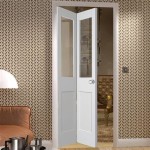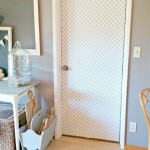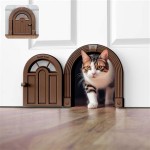Essential Aspects of Insulation for Interior Walls
Insulating interior walls is a crucial aspect of home maintenance and energy efficiency. Proper insulation can significantly reduce heat transfer between different areas of your home, resulting in improved comfort and lower utility bills. Here are some essential considerations to determine the recommended insulation for your interior walls:
1. Insulation Type
The most suitable insulation type depends on various factors, including the climate, wall construction, and desired R-value (insulating value). Common insulation types include:
- Fiberglass: Widely used, affordable, and available in batt, roll, or loose-fill forms.
- Cellulose: Made from recycled paper, cellulose is eco-friendly but can be susceptible to moisture.
- Spray foam: Provides excellent air sealing but is more expensive and requires professional installation.
- Mineral wool: Fire-resistant and eco-friendly, but can be more challenging to work with.
2. R-Value
The R-value measures the insulation's ability to resist heat flow. Higher R-values indicate greater insulation efficiency. The recommended R-value for interior walls varies depending on the climate zone. Consult with local building codes or an insulation expert to determine the appropriate R-value for your area.
3. Wall Construction
The type of wall construction influences the insulation method. For frame walls, batt or roll insulation can be fitted between the studs. For cavity walls, loose-fill insulation or spray foam can be used to fill the gap between the exterior and interior walls.
4. Moisture Resistance
In areas with high humidity or potential moisture problems, consider using moisture-resistant insulation. Fiberglass or spray foam with closed-cell structure can help prevent moisture absorption and mold growth.
5. Sound Absorption
If soundproofing is a concern, mineral wool or cellulose insulation can help absorb sound waves, reducing noise transfer between rooms.
6. Environmental Considerations
Some insulation materials, such as cellulose and mineral wool, offer eco-friendly options with minimal environmental impact.
7. Professional Installation
Proper installation is essential to maximize insulation performance. Consider hiring a qualified insulation contractor to ensure correct installation techniques and avoid potential issues.
Conclusion
Insulating interior walls is an effective way to improve home comfort, reduce energy consumption, and enhance soundproofing. By considering factors such as insulation type, R-value, wall construction, moisture resistance, and sound absorption, you can select the most suitable insulation for your specific needs. Remember to consult with local building codes and seek professional assistance for proper installation to ensure optimal results.

A Comprehensive Guide To Internal Wall Insulation For Homes

Do You Insulate Your Interior Walls

Here S Why You Should Insulate Interior Walls Of Your Home

Types Of Insulation The Home Depot

Should You Insulate Your Interior Walls A Insulation

What Is The Best Thermal Insulation For Interior Walls

Walls Insulation Commandos

Build A Peaceful Home Insulate Your Interior Walls Rockwool Safe N Sound
Partition Wall Insulation Rockwool

5 Reasons Why You Need Insulation In Your Bathroom Walls Kevin Szabo Jr Plumbing Services Local Plumber Tinley Park Il
Related Posts








